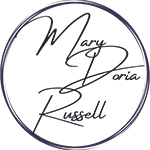The schedule for the Doc tour is almost complete (click EVENTS for details). Once it starts, I’ll be on the road more or less continuously for about six weeks, coming home every five days or so, to wash my clothes and repack. There was a time when I considered room service a sacrament, but the glamor of a book tour wears off fast. Like: about ten minutes after you get to the airport, where you’re treated like a suspect until you get on the plane, where you’re treated like freight.
In the meantime, I’m getting ready for the questions I’m likely to field on this tour. I suspect a lot of people are going to ask what I think of the movies “Tombstone” and “Wyatt Earp,” so I have to generate a snappy opinion of them without sounding snarky or mean, in case the screenwriter’s mother is in the audience. And I expect that there will be questions about Doc Holliday being born with a cleft palate, so I’m trying to verify that his uncle, Dr. John Stiles Holliday, was in fact the first American surgeon to correct the birth defect, back in 1851.
Other questions are easier to answer because I’ve been getting them for years. “Where do you get your ideas?” is always a source of curiosity. And “How long does it take to write a book?” comes up all the time.
I don’t write to formula, and I keep changing genres, so the answers to those questions are different for each novel. Lately, and oddly, the Wall Street Journal has become my most consistent source of ideas. The op-ed pages are as predictable as a Fox News editorial (not surprising given that they’re both owned by Rupert Murdoch), but there is a remarkable range of topics in the last section of the paper and the top section has excellent book reviews every day.
On Saturdays, there’s a column called Word Craft, contributed by a different author each week, which is how I found out that Frederick Forsyth finishes a novel in … 45 days. “Ten standard pages a day is not a back-breaker,” he writes. In 45 days, that pace will yield 450 pages, “a completed thriller novel.”
Mr. Forsyth undoubtedly realized that other novelists would read that during breakfast. After shooting coffee out her nose, at least one of them muttered, “Eat shit and die, Forsyth.” So he modestly pointed out that the 45 days are preceded by six months of “slow, painstaking research.”
Gosh. Six whole months.
Like Mr. Forsyth, I do about six months of research before I begin to write, but once I commit to a novel, each chapter and all the characters require additional background reading. I do that as I go along, in addition to the usual tasks of pacing the plot, developing personalities, and refining dialog.
The novelist Helen Schulman wrote the Word Craft column a few weeks ago. “I work on a computer and I start every day rereading and revising, from the opening line… When I get to page 70 this becomes impractical, so I start five pages in and continue to inch my way forward.”
That’s a perfect description of my habits. Like Ms. Schulman, I’m astonished by the author Jennifer Egan, who reports that she writes long-hand on yellow pads without rereading a word until she finishes a complete draft of a book. Then she types the manuscript into her computer and revises endlessly after that. Which made me feel better.
On the other hand, the highly praised writer Cynthia Ozick says, “You must never go back and change anything.” Her first draft is her only draft. I can’t even imagine that. Hell, I edit my grocery list. I revise endlessly while I’m writing, and once the story is complete, I go back over it start to finish, again and again, cutting crap, reworking dialog, deepening characterization, finding themes and strengthening them, polishing the language, thinking harder about the relationships, on and on and on.
After five novels, I can now report that my novels take 39 and a half months each, on average (range: 18-84 months). Half that time goes into what I laughingly call “the first draft.” Just out of curiosity, when I started my sixth novel, I decided to keep track of how many days it took me to write the first chapter of The Cure for Anger.
Admittedly, first chapters are always the hardest because there are so many decisions to make. Voice, point of view, tense, style, structure, etc. All I can say is, Mr. Forsyth would be finished by now. And I’m going to stop counting the days.
